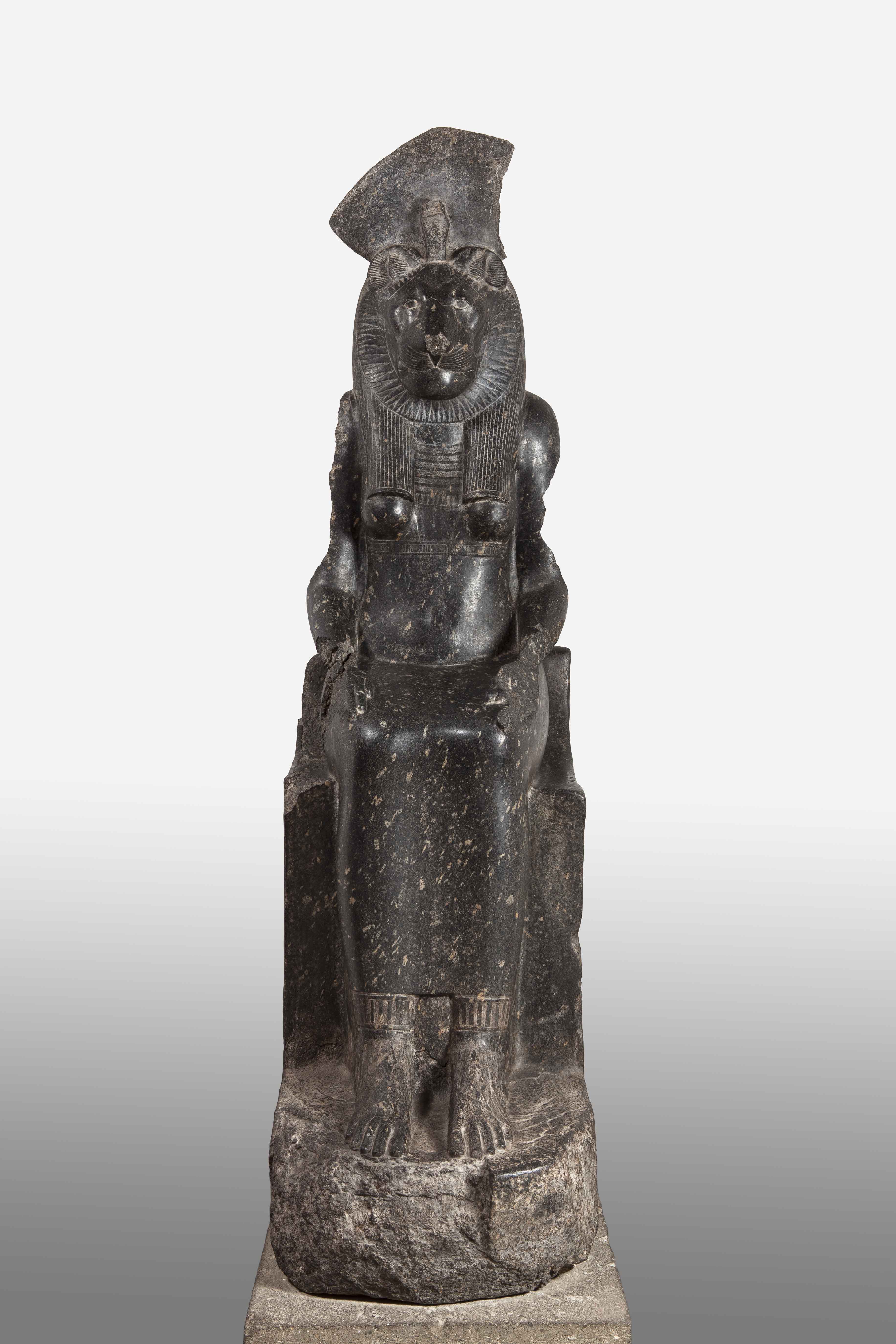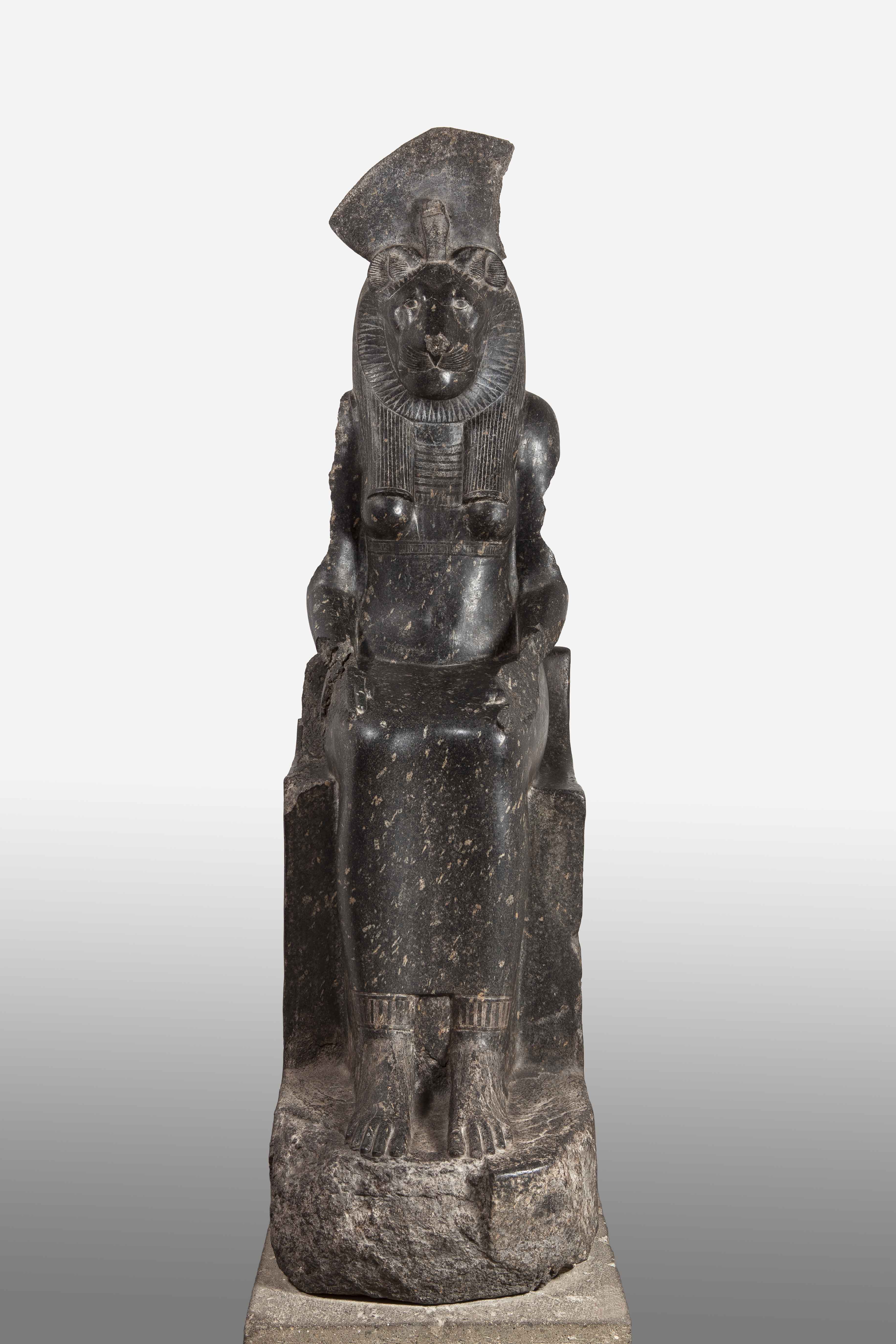Statues of Sekhmet
Artist: Unknown
Date: 18th dynasty, reign of Amenhotep III, 1391-1353 B.C.
Classification: Statue
Dimensions: Various
Materials: Granites, Basalts
Description
MEDIUM PRIORITY PROJECT
The restoration is part of the “Sekhmet Project” focused on the study and preservation of the statues of the goddess Sekhmet, one of the most important deities of the Egyptian pantheon, a healer and protective goddess. These are five, including statues and fragments, of the eleven granodiorite statues of the deity preserved in the Gregorian Egyptian Museum, which entered the Vatican in the first half of the 19th century as a purchase from the Cavazzi-Guidi collection. The statues of the goddess, depicted both standing and seated (pictured here), were all originally located in the funerary temple of Amenhotep III at Kom el-Hettan (West Thebes, Luxor), erected between 1390 and 1353 B.C. Many statues were later reused in other temple contexts in later periods, where a few can still be found, but many remained in situ.
TOTAL COST: € 47.171,90 ($ 46,105.82)
Restoration Procedures
-
Photography before, during, and after the intervention
-
Preconsolidation of decohesive surfaces
-
Cleaning
-
Grouting
-
Application of a protective coating
Detail
Inventory N°: 22657, 22664, 22665, 22667, 22668
Artist: Unknown
Date: 18th dynasty, reign of Amenhotep III, 1391-1353 B.C.
Dimensions: Various
Materials: Granites, Basalts
Department:
Egyptian and Near Eastern AntiquitiesCurators:
Dr. Alessia Amentamuseum:
Gregorian Egyptian MuseumLaboratories:
Stone MaterialsWishbook year: 2023

Statues of Sekhmet

Details
Inventory: 22657, 22664, 22665, 22667, 22668
Artist: Unknown
Date: 18th dynasty, reign of Amenhotep III, 1391-1353 B.C.
Classification: Statue
Materials: Granites, Basalts
Dimensions: Various
Museum: Gregorian Egyptian Museum
Department: Egyptian and Near Eastern Antiquities
Laboratory: Stone Materials
Wishbook year: 2023
Description
MEDIUM PRIORITY PROJECT
The restoration is part of the “Sekhmet Project” focused on the study and preservation of the statues of the goddess Sekhmet, one of the most important deities of the Egyptian pantheon, a healer and protective goddess. These are five, including statues and fragments, of the eleven granodiorite statues of the deity preserved in the Gregorian Egyptian Museum, which entered the Vatican in the first half of the 19th century as a purchase from the Cavazzi-Guidi collection. The statues of the goddess, depicted both standing and seated (pictured here), were all originally located in the funerary temple of Amenhotep III at Kom el-Hettan (West Thebes, Luxor), erected between 1390 and 1353 B.C. Many statues were later reused in other temple contexts in later periods, where a few can still be found, but many remained in situ.
TOTAL COST: € 47.171,90 ($ 46,105.82)
Restoration Procedures
-
Photography before, during, and after the intervention
-
Preconsolidation of decohesive surfaces
-
Cleaning
-
Grouting
-
Application of a protective coating
Media

Statue of the Goddess Sekhmet - inv. 22657

Statue of the Goddess Sekhmet - inv. 22667

© 2025 Patrons of the Arts
in the Vatican Museums
Vatican Museums V-00120,
Vatican City State (Europe)
+39 0669864499
